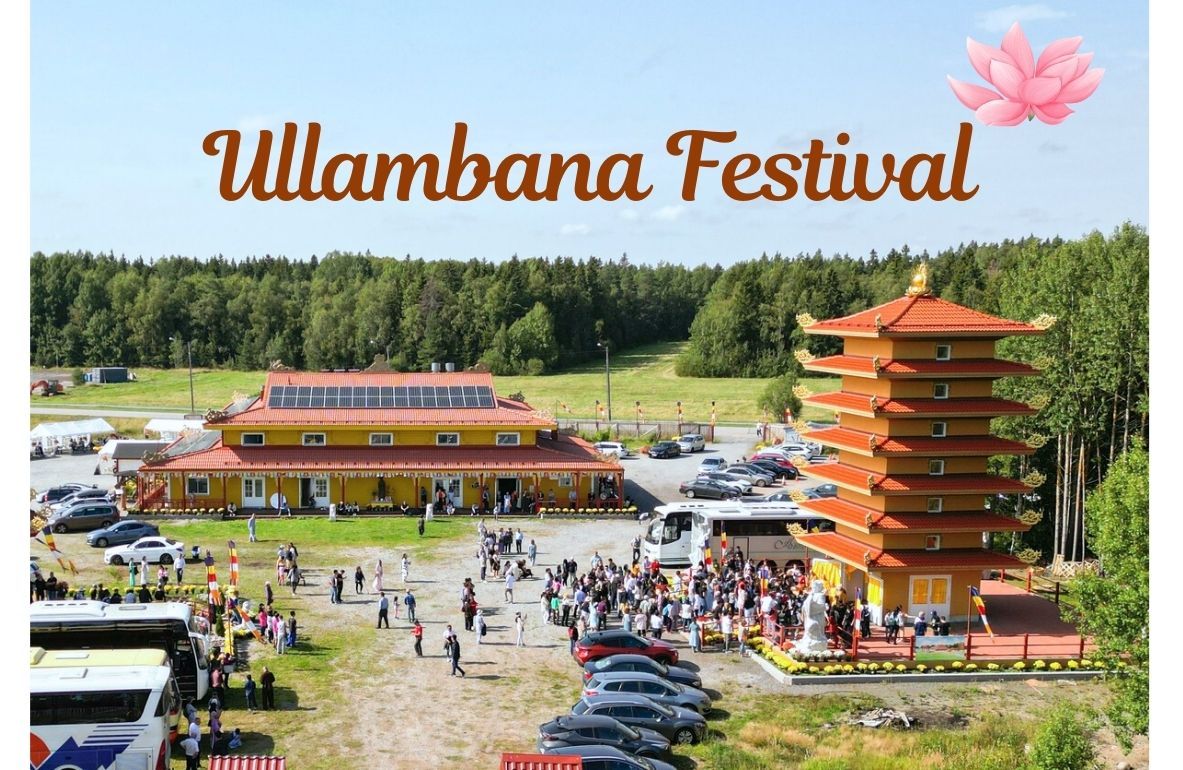Vu Lan 2025 Ghi Danh xe Bus
👉 Mẫu đăng ký ở cuối trang này (link đã đóng) Tu viện Liên Tâm có

The Ullambana Festival, known as Vu Lan in Vietnamese, is one of the most significant Buddhist celebrations, dedicated to filial piety, gratitude, and honoring ancestors. This sacred festival, observed on the 15th day of the 7th lunar month (usually in August), is a time for Buddhists to express their love and respect for their parents, both living and deceased, and to engage in acts of compassion and merit-making.
The origins of Ullambana trace back to the story of Maudgalyayana (Mục Kiền Liên), one of the Buddha’s foremost disciples. According to Buddhist scriptures, Maudgalyayana discovered that his mother had been reborn into the realm of hungry ghosts due to her past karma. Desperate to relieve her suffering, he sought guidance from the Buddha, who instructed him to make offerings to the monastic community on the 15th day of the 7th lunar month. Through this act of generosity, Maudgalyayana’s mother was liberated, and thus, Ullambana became a day for all Buddhists to perform good deeds, dedicate merit to their ancestors, and practice gratitude.
The celebration of Ullambana consists of various rituals among the monasteries as well as among the lay Buddhists. Let’s explore some of the most common traditions and rituals during Ullambana.
Ceremonial Offerings: Monks and nuns lead rituals, including the recitation of sutras, prayers for ancestors, and offerings of incense, flowers, and food to the monastic community.
Dharma Talks: Teachings on filial piety, gratitude, and the importance of compassionate actions are shared to inspire practitioners.
The Liberation Ceremony: A special ritual to pray for deceased ancestors and those suffering in lower realms, helping them attain peace and liberation.
Wearing the Rose Ceremony: Attendees wear a red rose if their parents are alive and a white rose if they have passed away. This simple yet profound tradition reminds Buddhists to cherish and express gratitude to their parents.
Honoring the Three Jewels: Practitioners pay homage to the Buddha, Dharma, and Sangha through chanting, making offerings, and engaging in acts of merit.
Dāna (Charity and Giving): Many engage in acts of generosity, such as offering food, donations, and alms to the monastic community and those in need.
Filial Piety Actions: Buddhists perform good deeds in dedication to their parents, such as caring for elders, engaging in charity, and cultivating virtue in daily life.
The Ullambana Festival at Lien Tam Monastery is a time to reflect on gratitude, honor our parents, and cultivate compassion. Whether you wish to pray for your ancestors, make merit, or simply experience a deeply spiritual event, we welcome you to join us in this beautiful tradition.
Ullambana at Lien Tam Monastery is an open event where everyone is welcome to join free of charge. Each year, the celebration attracts up to 1000 participants.

During the Ullambana program, there are kiosks selling traditional Vietnamese food offered by lay Buddhists, as well as a variety of Buddhist-themed souvenirs and items.
At Lien Tam Monastery, all transactions at these kiosks are conducted using a special festival currency. Visitors can exchange cash or card payments for these special coins at exchange spots. These coins are valid only for purchases during Lien Tam’s festivals. If visitors have any unused coins, they can exchange them back for euros.
To ensure that Buddhists from across Finland can participate, Lien Tam Monastery provides free bus transportation from major cities, such as Helsinki, Vantaa, Espoo, Porvoo, Tampere, Kokkola, Joensuu, Narpio, and more.
Details for registration are announced annually.